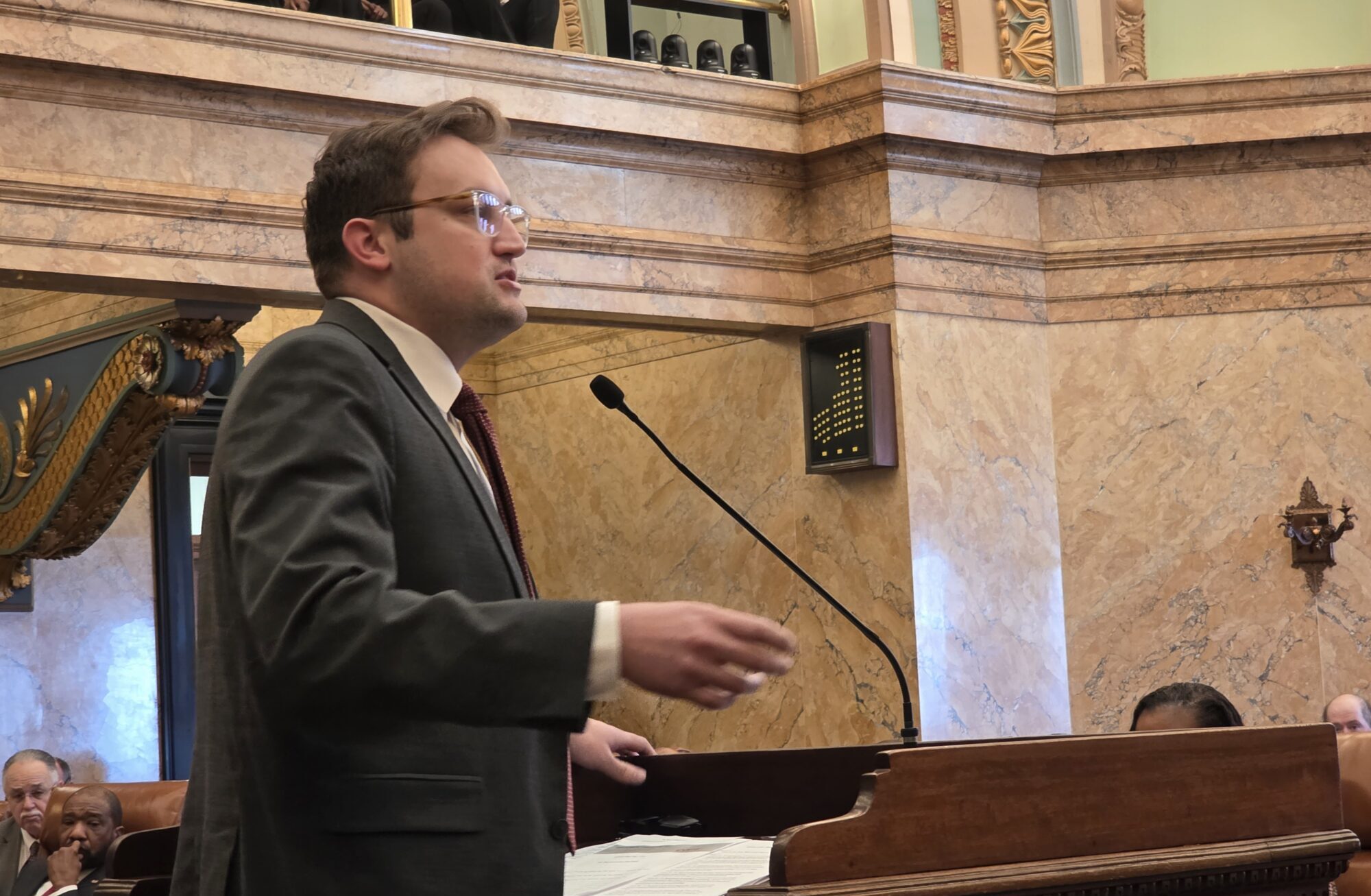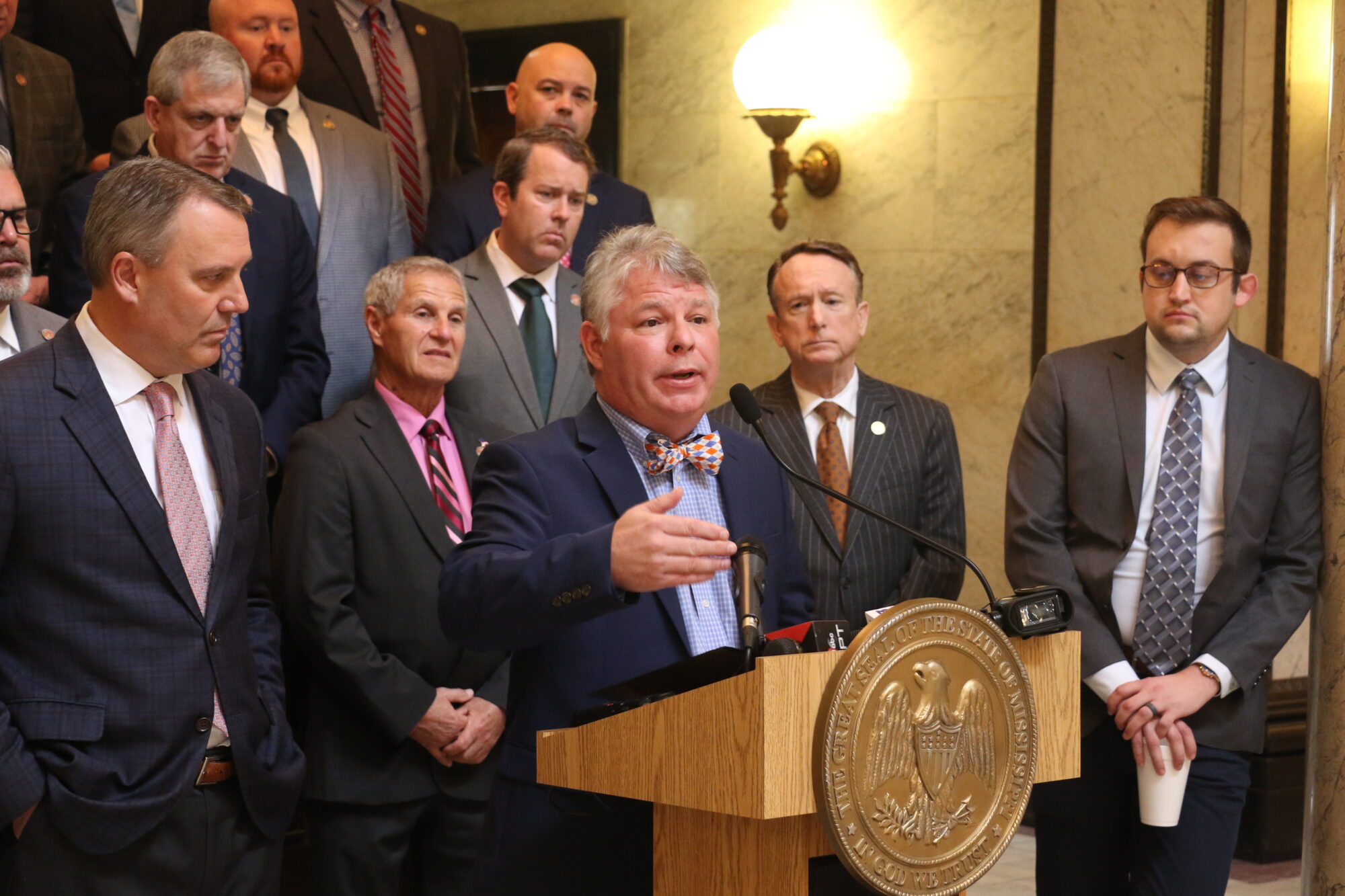
- Advocacy groups have raised concerns over mandatory minimum sentences, saying they are one of the most costly, unpopular, and least effective ways to improve public safety.
Two Senate bills moving through the Mississippi Legislature would have imposed mandatory minimum sentences for vehicle theft crimes, but the House Judiciary B Committee has removed those mandatory minimums and passed the legislation on to the full chamber for consideration.
The focus of the bills is on the crimes of the theft of a motor vehicle and the possession or receiving of a stolen vehicle.
Senate Bill 2174 would have led to a sentence of not less than five years, but not more than 20 years, and/or a fine of not more than $10,000 for the first offense for motor vehicle theft. Second and subsequent offenses could result in a sentence of not less than 10 years, and not more than 40 years, in prison and/or a fine of up to $20,000. The measure passed the Senate by a vote of 48-4.
Another bill, Senate Bill 2175, deals with possessing or receiving stolen property with a combined value of at least $25,000. The Senate legislation added a new subsection in the law focused on the possession of a stolen vehicle. Those crimes would have resulted in a felony conviction for a minimum sentence of five years, with a maximum sentence up to 20 years, and/or a fine of not more than $10,000. The bill passed the Senate by a vote of 46-6.
State Senator Joey Fillingane (R), the author of both bills, said the measures addressed a growing problem in the state, especially in larger cities like Jackson and even Brookhaven where vehicles are being stolen from car lots during the night. He told Magnolia Tribune that he authored the legislation after being approached by the president of the Mississippi Automobile Dealers Association, Marty Milstead, who informed him of the problem.
When the bills reached the House Judiciary B Committee, the mandatory minimums were removed and the committee included a reverse repealer, leaving the remaining provisions in the bill, State Representative Kevin Horan (R) said on Wednesday. Horan said he removed the mandatory minimums because there are violent crimes that do not result in such sentences upon conviction.
“I was more concerned about getting the mandatory minimums out,” Horan said.
Noting the House position, Senator Fillingane said he is willing to work with Rep. Horan on including mandatory minimums for violent crimes as the bill moves forward.
Grant Callen, CEO of Empower Mississippi, believes mandatory minimum sentences are one of the most costly, unpopular, and least effective ways to improve public safety.
“We encourage lawmakers to reject any efforts to impose new mandatory minimum sentences, especially on non-violent offenders. Mandatory minimums take important discretionary power away from judges without any evidence that they deter future crime,” said Callen.
According to a poll conducted by Empower Mississippi, 73 percent of Republican voters trust judges to sentence someone appropriately based on the crime, while only 12 percent feel that longer sentences are a solution to deter crime.
Empower also notes the Magnolia State’s growing incarceration problem. Their poll shows that 72 percent of Republicans would rather see the state spend money to help former inmates become productive members of society while reducing the recidivism rate.
FWD.us Mississippi State Director Alesha Judkins is another advocate who has raised concerns about such mandatory minimum sentencing bills. On Tuesday, she said in a statement that the Senate bills “needlessly exacerbate Mississippi’s already dangerously high prison population without making our communities safer.”
“Policymakers must follow decades of research showing that we can reduce crime and incarceration at the same time, not rely on failed policies of the past,” Judkins said. “Mandatory minimum sentencing eliminates judicial discretion and removes incentives for people to participate in rehabilitative programming. We urge our elected leaders to reject these bills and instead prioritize data-driven policies that promote public safety, reduce our prison population responsibly, and open up pathways for more Mississippians to rejoin the workforce.”
Both bills were amended and passed out of the House Judiciary B Committee before the deadline. They now await consideration by the full House of Representatives.










